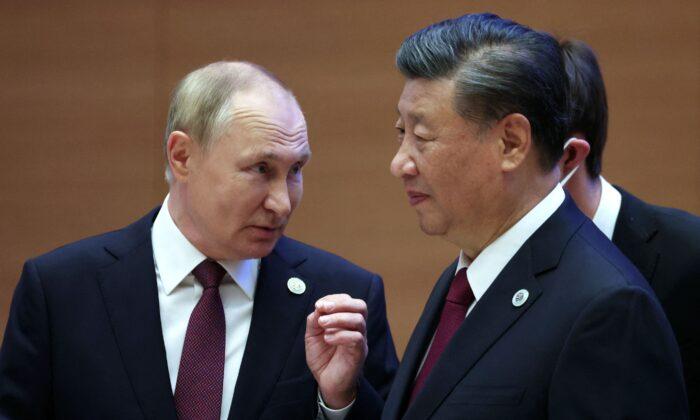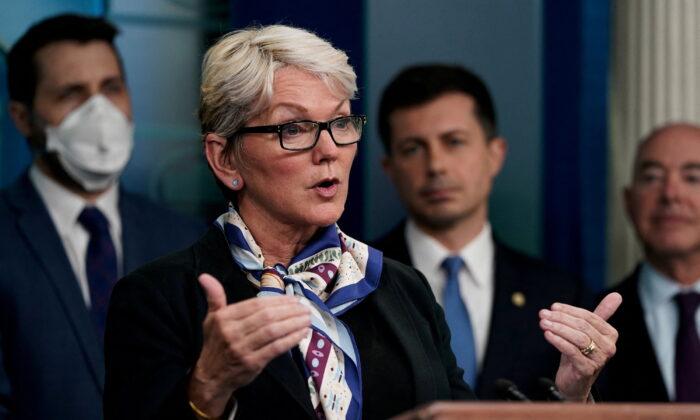The U.S. Department of Commerce said on Nov. 10 that it has removed Russia from its market-economy category in a bid to put pressure on Moscow under the context of bilateral trade, and further isolate the country’s economy.
The department cited increased interference from Russia’s government in its own economy, resulting in price distortions, which is disadvantageous to U.S. businesses. The decision—a retaliatory action by the U.S. government for Russia’s continued aggressions in Ukraine—gives the ability to apply the full force of antidumping laws against imports from Russia.
“Based on a balanced evaluation of facts and in line with U.S. law, this decision will ensure that Commerce’s dumping calculations reflect economic realities on the ground and that U.S. industries get the relief from unfair imports that they are entitled to under the law,” the department said.
While Russia had been on a list of nations that the United States considers non-market economies, it was removed from the classification in 2002 following Moscow’s pursuit of measures to liberalize its economy.
The list includes countries such as Russian allies Belarus, China, Vietnam, Armenia, Azerbaijan, Moldova, Uzbekistan, and other nations that were part of the former Soviet Union.
The Commerce Department’s determination was based on a number of criteria, including the climate for foreign investment, currency convertibility, and government control of the means of production.
“In its decision, Commerce found extensive backtracking in these areas, particularly since the invasion of Ukraine,” the department said in a statement.
US Trade With Russia
The new classification will lead to higher import duties for Russian-origin products. However, the effect may actually be mild because Russian imports have already been curbed since the Ukrainian invasion.The United States imported $12.5 billion of Russian goods from the beginning of this year to September. A year ago, U.S. imports from Russia totaled $29.7 billion, while U.S. exports to Russia totaled $6.4 billion.
“Putin’s regime shouldn’t get the privileges of a market economy designation. I’m glad the Commerce Department implemented this important measure that will put additional pressure on this illegitimate regime,” Sen. Sherrod Brown (D-Ohio) said.
“The Russian government owns as much as 70 percent of its economy—that’s not a market economy—and by removing Russia’s market-economy status, the United States will prevent Russia from engaging in unfair trade practices with our allies.”
During the Nov. 11 climate summit in Egypt, President Joe Biden called on Russia to stop using “energy as a weapon and holding the global economy hostage.”





